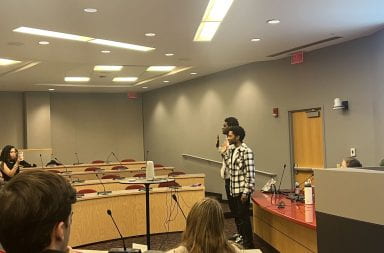Greekrank.com has expanded the world of college gossip on the Internet.
The website allows college students to rank sororities and fraternities across the nation based on five factors: hotness, popularity, involvement, classiness and fun.
Ohio State is one of the nearly 100 universities for which students can make these anonymous, subjective ratings.
“People don’t have to be held accountable for what they say,” said Lauren Welch, a third-year in English. “They can get out their feelings without getting in trouble for it.”
Welch, a member of Kappa Delta sorority, first came across the website before joining the Greek system.
“It can bias your opinion and put ideas in your head,” she said. “It’s another idea to stir up chaos. It’s another JuicyCampus.”
Similar to GreekRank, JuicyCampus was a website that gave college students the chance to share their opinions without identifying themselves. Founded in fall 2007, the website gradually extended to more than 500 U.S. colleges and universities including OSU.
Matt Ivester, the founder of JuicyCampus, said the goal was to create “a place for fun, lighthearted gossip, rather than a place to tear down people or groups.”
Because of a lack of revenue, JuicyCampus shut down in February 2009.
Since its closure, new websites such as GreekRank have emerged in its place.
GreekRank differs from JuicyCampus in the fact that it exclusively targets greek life on college campuses.
“Greek life is a big thing, and people like to talk about it,” first-year Allison Cochran said.
The website allows college students to rate 50 sororities and fraternities on OSU’s campus alone.
“It is demeaning toward the entire Greek community,” said Lexie Volakis, a third-year in accounting and a member of Chi Omega sorority. “It is absolutely absurd and so entirely false. It hurts to read.”
Like Welch, Volakis finds danger in the anonymity of GreekRank.
“It’s the anonymous side that keeps people coming back,” she said.
In addition to OSU, several other Ohio colleges can be found on the website, including Miami University, Ohio University, Bowling Green University and University of Dayton.
On the website, the owner claims that he or she deletes “almost all reported posts that contain attacks or defamations” and sees “no reason to remove particular schools, fraternities and sororities.”
From her experience, Welch has personally found it best to ignore the website all together.
“Any comment gets attention,” she said. “Even if you say positive things, you’re promoting the website.”


